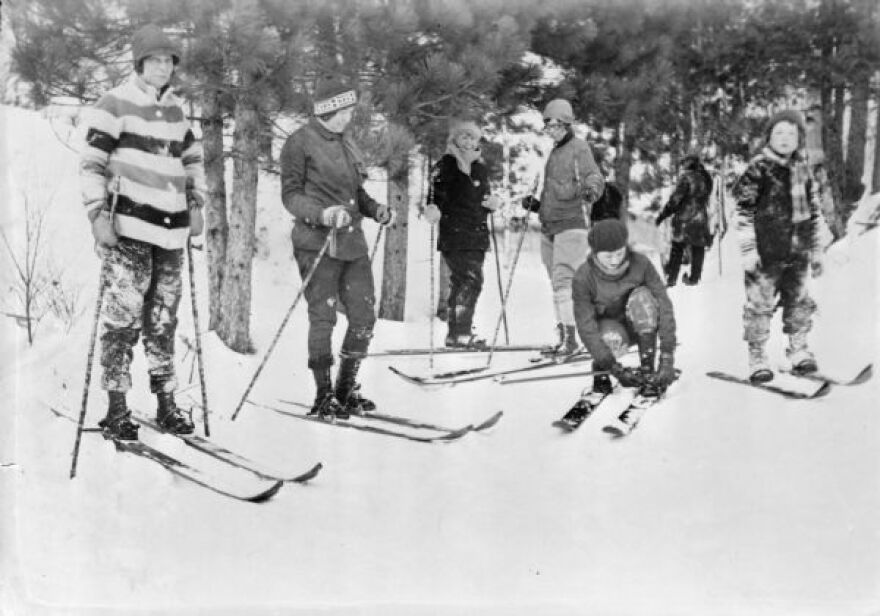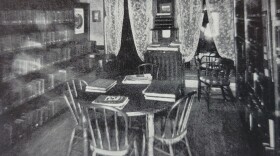Today it is possible to find an organized competition in almost any of the winter silent sports. While motorized snowmobiling garners much attention from Northwoods promoters, snowshoeing, cross-country skiing, and dog sledding, among other silent sports, remain as popular as ever. While individual competitions take place every year, a multi-sport event featuring many different activities over multiple days is less common. However, in the days when the snowmobile was an oddity, multiple day winter carnivals were an annual event in many Northwoods communities.
Summer resorts had been around for decades, but the idea of taking advantage of Northwoods winters to attract recreational tourism dollars did not really begin until the mid-1920s. However, as reporters noted in 1926, thousands of persons learned for the first time what northern Wisconsin’s towns had to offer in the way of winter recreation.
For example, held in February 1926, Rhinelander’s first winter carnival offered something for everyone. The events included competitions in snowshoeing, speed and figure skating, ice hockey, cross-country skiing, downhill skiing, ski jumping, toboggan races, dog sledding, dog races, rifle and trap shooting contests, snowball battles between lumber camp teams, and tug-of-war battles among railroad men. Eight-thousand people from across Wisconsin, with trains bringing in spectators from Minneapolis and Chicago, came for the fun.
The carnival proved so popular that in March images of the competitions were shown to audiences in the Majestic Theater prior to the feature Red Ryder movie. It became an annual event, and in 1927 a Queen of the Winter Carnival contest was added, with Eva Clure becoming the city’s first winner.
By 1928, the Winter Carnival was huge, with events spread out over three weekends. The American Legion and Chamber of Commerce played a role in organizing the festival, and in many ways, it was a Northwoods Winter Olympics emphasizing outdoor athletics. Sadly, in 1929 the Chamber of Commerce backed out of sponsorship, and there was no organized winter carnival in Rhinelander. Other communities had them, and winter sporting events went on as usual, but there was no community-wide celebration to accompany them.
The Winter Carnival returned in 1930, but tremendously reduced in size from what it had been. With only a single weekend for events, just skiing, hockey, and ice skating remained. After 1930, the Rhinelander Winter Carnival faded away. Events in individual sports continued to be sponsored by sports clubs much as they are today, but there was no more community-wide festival for the remainder of the decade.
After World War II, the idea of a community winter carnival was revived in Rhinelander. The impetus was Wisconsin’s centennial year celebration, and a winter carnival set for January 1948 seemed a perfect way to kick off the events. Initially the revived winter carnival sponsored nearly all the activities seen during the earlier 1920s carnivals, including the crowning of a Winter Queen.
By 1953 and 1954, however, many of the outdoor events has slipped by the wayside, and the Winter Queen was crowned during a basketball game played in the Memorial Building. When a community winter celebration was again revived in the early 1960s, it centered on snowmobiles.








